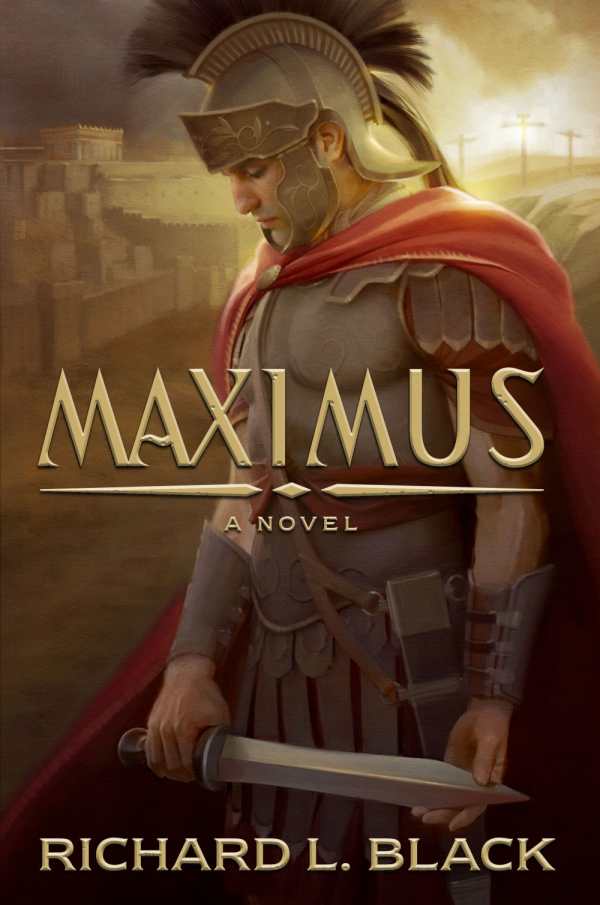Maximus
Maximus combines faith and fantasy to the maximum, taking its characters on a religious journey to find salvation.
Richard Black’s Maximus is a sword-and-sandal epic that combines warrior odyssey with spiritual enlightenment. At over four hundred pages, it assembles a parallel narrative to showcase two parties’ quests for truth and enlightenment in a historical period of strife and war.
A hardened Roman warrior and some young disciples of Christ set out to see the coming of the Messiah firsthand and find spiritual discoveries on two separate paths. When General Lucius Maximus returns to Rome after a long time spent battling outside forces to expand the Roman conquest, he’s embittered and questions his monarchy’s intentions. But when the Roman senator Gaius praises him before requesting him to journey to the city of Capernaum to see the coming of Jesus Christ according to Pontius Pilate’s prediction, Maximus eagerly takes up the challenge and leaves for another adventure with his co-fighter Androcles. And they’re not alone in the quest to seek the Messiah: Jewish siblings Liora and David, enriched by their fervor to see Jesus as predicted in their society’s holy texts, also set out for Capernaum.
Black’s complex plot balances Maximus’s travels over sea and land with the youths’ rigorous travels with their families, noting their similar trials and tribulations. The text itself avoids frills and is broken down into the travels across Judaea to Jerusalem and introducing supporting characters that converse with the protagonists to reveal their spiritual interests, such as the children’s uncle and Rabbi Jershon, giving them guidance with quips like, “[the Messiah] has been patient and protective of the children of Israel, as I have been with you.”
While much of Maximus’s adventures on his route are engaging—he and Androcles spar soldiers in Jerusalem—it’s hard to understand if the novel is meant to be more of an adventure or a religious parable. Much of their travels, especially those of David and Liora, revolve around philosophical pontification and religious diatribes. “She was confronted by that knowledge, refusing to worry about the how of God’s ways.” While the characters themselves are interesting and placed in historical contexts well, Black has not made it clear enough if the characters’ journeys and their subsequent interchanges are more about their own souls or trying to relay a particular message.
To coin a bad pun, this is a novel of biblical proportions. It has a clear prose style and incorporates some careful period research as one reads page upon page. In totality, Maximus combines faith and fantasy to the maximum, taking its characters on a religious journey to find salvation.
Reviewed by
James Burt
Disclosure: This article is not an endorsement, but a review. The publisher of this book provided free copies of the book and paid a small fee to have their book reviewed by a professional reviewer. Foreword Reviews and Clarion Reviews make no guarantee that the publisher will receive a positive review. Foreword Magazine, Inc. is disclosing this in accordance with the Federal Trade Commission’s 16 CFR, Part 255.

